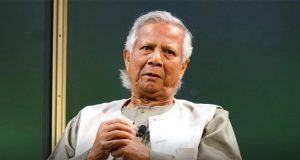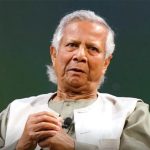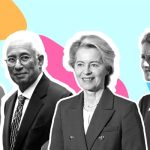Dr. Muhammad Yunus, the Nobel Peace Prize-winning social entrepreneur from Bangladesh, continues to be a global icon in 2024. Renowned for pioneering microcredit and microfinance, his innovative contributions have reshaped global economic and social development.
Early Life and Education
Born on June 28, 1940, in Chittagong, Bangladesh, Dr. Yunus displayed academic brilliance from an early age. After completing his education in economics at Dhaka University, he pursued further studies in the United States, earning a PhD from Vanderbilt University. His early teaching career laid the foundation for his later work in social entrepreneurship.
The Birth of Microfinance and Grameen Bank
In the mid-1970s, while teaching at Chittagong University, Dr. Yunus encountered extreme poverty in nearby villages. Realizing that traditional banking systems excluded the poor, he initiated a revolutionary concept: microloans without collateral. This led to the establishment of Grameen Bank in 1983.
Grameen Bank’s model empowered millions of marginalized people, especially women, through small loans that enabled them to start businesses. The success of this model earned Dr. Yunus and Grameen Bank the Nobel Peace Prize in 2006.
Achievements and Global Recognition
Dr. Yunus has received numerous international accolades, including:
- Nobel Peace Prize (2006): For economic and social development through microcredit.
- Presidential Medal of Freedom (2009): Awarded by U.S. President Barack Obama.
- Congressional Gold Medal (2010): The highest civilian honor from the U.S. Congress.
His work has influenced development policies in many countries, inspiring countless microfinance institutions worldwide.

Challenges and Controversies
Despite his success, Dr. Yunus faced significant challenges. In the 2010s, political and legal disputes in Bangladesh led to his removal from Grameen Bank. Critics questioned aspects of the bank’s management, though global supporters defended his integrity and contributions.
Vision for 2024 and Beyond
In 2024, Dr. Yunus remains dedicated to social business, emphasizing three core goals:
- Zero Poverty: Eradicating extreme poverty globally.
- Zero Unemployment: Creating jobs through social entrepreneurship.
- Zero Carbon Emissions: Advocating for environmental sustainability.
His initiatives, including the Yunus Centre, continue to develop projects addressing these challenges. His vision for a world with equitable economic opportunities resonates globally.
Legacy and Future Impact
Dr. Yunus’s legacy transcends microfinance. His concept of a “world of three zeros” inspires policymakers, businesses, and activists worldwide. His groundbreaking work serves as a blueprint for achieving sustainable development goals.
Conclusion Dr. Muhammad Yunus’s journey from a university professor to a global change-maker is a testament to the power of innovative thinking and social commitment. In 2024, his life’s work continues to inspire millions, ensuring his enduring legacy in the fight against poverty and inequality.






No Comment! Be the first one.